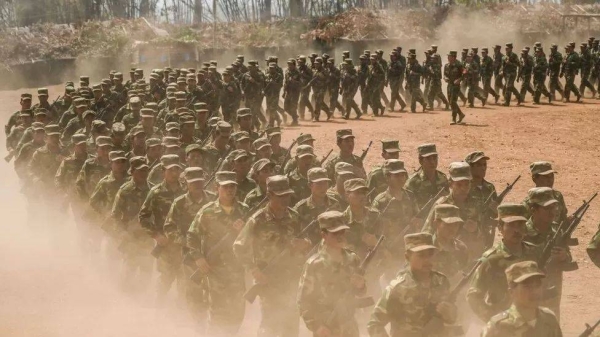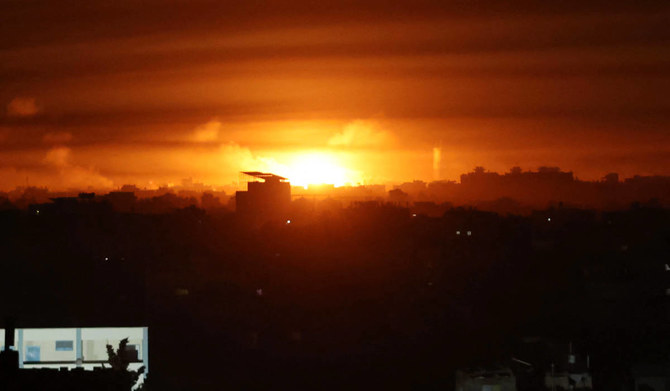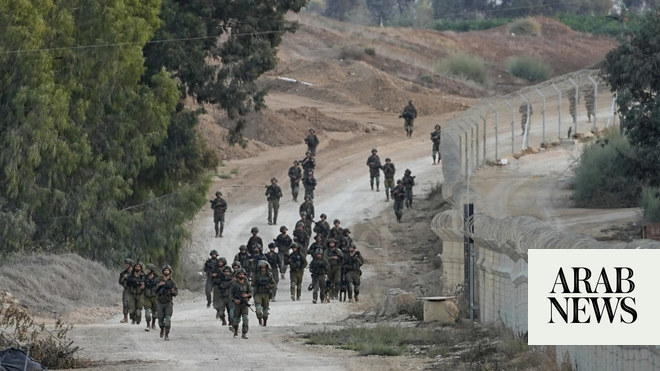
The Myanmar military is suffering defections from its forces and is finding it hard to recruit. In exclusive interviews, newly-defected soldiers tell the BBC that the junta, who seized power in a coup two years ago, is struggling to suppress the armed pro-democracy uprising.
"No one wants to join the military. People hate their cruelty and unjust practices," says Nay Aung. The first time he tried to leave his base he was badly beaten with a rifle butt and called a "traitor".
He managed to escape the second time and flee across the border to Thailand with the support of opposition groups.
"One of my friends is in the resistance," he says. "I called him and he told people here in Thailand about me. I arrived here with their help."
He"s now living in a safehouse along with 100 other newly-defected soldiers and their families. These men, who refused to fight their own people, are now in hiding so we are not using their real names. They"re being housed and protected by the very resistance movement they were ordered to fight.
Since the military seized power in a coup in February 2021, more than 13,000 soldiers and policemen have defected, according to the exiled National Unity Government of Myanmar (NUG). They are offering cash incentives and support to try and get more soldiers and police officers to switch sides.
At 19, Maung Sein is the youngest in the safehouse. He joined the military when he was just 15 years old.
"I admired the military," Maung Sein says, and he wanted to make his family proud. But the military"s violent crackdown on the nationwide uprising demanding democracy has dramatically changed people"s view of men in uniform.
"We saw online people calling us "military dogs"," he says - the animal term is one of the biggest insults in Myanmar. "That made me sorry and sad."
Maung Sein says foot soldiers like him couldn"t disobey "orders from above" to "kill civilians and burn villages".
But he also left because he thinks the military is in a weak position.
Ethnic armed organisations in the border regions alongside a network of civilian militia groups, called the People"s Defence Forces (PDF), are proving to be a much stronger force than many expected and the Myanmar military has lost control of large parts of the country.
In Magway Division and Sagaing Division, places that previously provided the military with many recruits, young people are instead joining the civilian militia.
Before managing to defect, Maung Sein"s unit was ordered to "attack and destroy" a PDF training camp.
The operation didn"t go well. Seven of his fellow soldiers were killed before they were ordered to retreat. "They [the PDF] have a better strategy," he says, "which makes them stronger."
The PDF enjoys widespread public support and villagers provide intelligence about the military"s movements and shelter the young militia fighters.
"They are under attack across the country," he says, reflecting on the state of Myanmar"s army, "and they don"t have enough men to fight back."
This is why, he says, the military is increasingly using the air force.
In recent months the military has carried out devastating air strikes across the country. Since January there have been more than 200 reports of air attacks. The deadliest airstrike hit the Pa Zi Gyi village in Sagaing region in April, killing more than 170 people, including many women and children.
"Without the air force, it"s very likely that the military will fall," Capt Aung predicts.
Like the other defectors, everyone in his family was proud of him when he was chosen as an air force cadet. In those times, he says, it was an honour to be part of Myanmar"s military. The coup, he says, "pulled us down the abyss".
"Most of the people I lived with in the air force were not bad people. But since the coup, they"ve been acting like monsters."
He"s the only one in his unit who has defected, though. Most of his friends have "kept fighting against my people", he says.
Despite the Myanmar military"s critical role in the country"s affairs, its exact size is unknown. Most observers estimate at the time of the coup it was around 300,000 but now is much lower.
The resistance has used new technologies like video games alongside traditional crowdfunding mechanisms to raise money, much of it individual donations from the diaspora.
They have managed to raise significant sums this way but they lack access to military grade weapons or fighter jets.
The National Unity Government has offered to pay $500,000 (£405,000) to regime pilots or sailors who defect with a military aeroplane or navy vessel, but so far no-one has done this. — BBC












